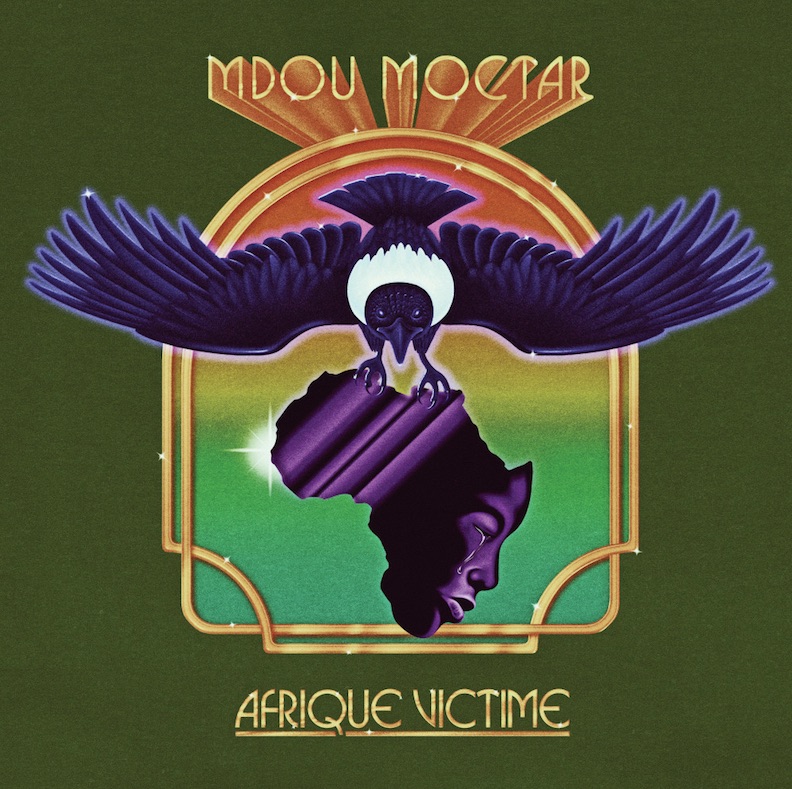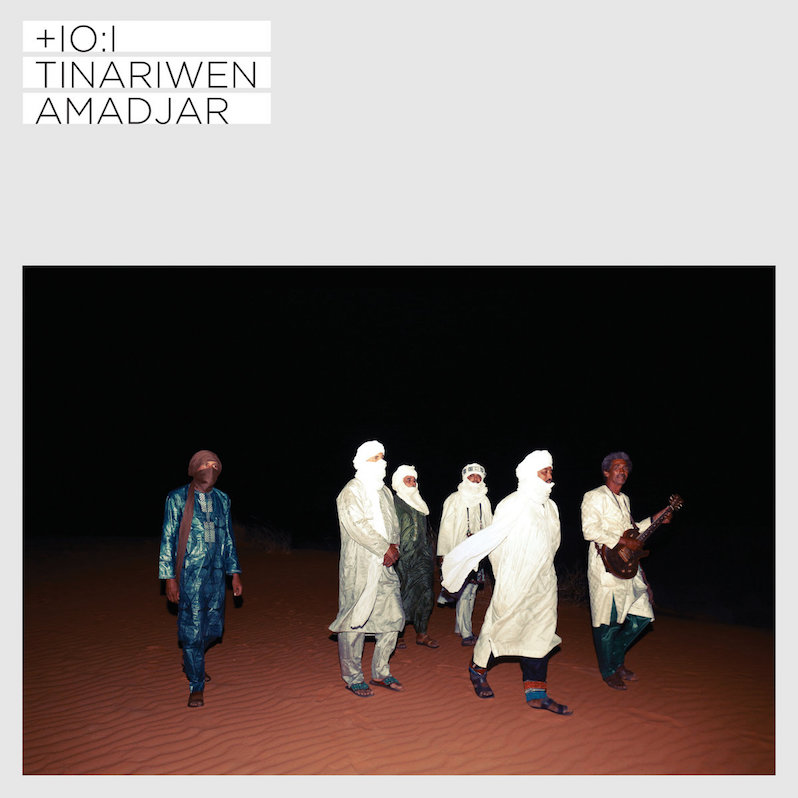Mdou Moctar – Afrique Victime

No artist could ever truly fill the shoes of an artist like Prince, but one of the biggest moments of Mdou Moctar’s career found him doing just that. In 2015, Moctar reprised the role of Prince’s “The Kid” in Akounak Tedalat Taha Tazoughai, an adaptation of Purple Rain (translated as “Rain the Color of Blue with a Little Red In It”) set in Moctar’s own homeland of Agadez, Niger, which likewise found the Tuareg artist similarly depicting romantic and home struggles between scenes of riding on a purple motorcycle. But most importantly, it showcased an artist with a similar sense of mastery of the guitar, his desert blues style infused with the pyrotechnic dazzle of psychedelic rock and early heavy metal. Moctar’s catalog is nowhere as labyrinthine and voluminous, nor his aesthetic as provocative, but much like Prince Rogers Nelson, the Nigerien artist can certainly shred.
I wouldn’t be surprised to hear anyone say their immediate takeaway from hearing Moctar’s prior albums like 2019’s Ilana (The Creator) was the sheer electricity of his guitar playing. His style is compared as often to that of classic fretboard wizards such as Jimi Hendrix as often as it is to Tishoumaren desert blues artists such as Tinariwen, and a press release for Moctar’s new album Afrique Victime even cites Van Halen and Black Flag among its reference points. The thunder and urgency of both of those groups are apparent throughout Afrique Victime, his first for indie rock superlabel Matador, though not in obvious ways. He employs the technical dazzle of the former and the energy and urgency of the latter, but Moctar’s style as ever is uniquely hypnotic even when reaching toward greater and more incendiary heights.
With Moctar’s move to a higher profile label comes an expansion of his band’s stylistic reach. Their output thus far has largely comprised those fiery electric moments, but much of what makes Afrique Victime stand out are the quieter acoustic meditations, such as the more stripped down, looping riffs of “Tala Tannam,” or the thumping, strumming blues of “Layla,” whose percussive pulse opens the gates to a gradual escalation of outside elements, from punchy drum machine fills to the psychedelic swirl of an electric guitar breaking through. And though “Ya Habibti” is one of the album’s most straightforward tracks, its mixture of acoustic guitars and electronic beats provides a compelling contrast, a kind of organic/electronic contrast that’s reminiscent of his early cellphone recordings.
On the moments where Moctar plugs in the fuzzbox and lets his most heroic riffs fly—which is a little over half the album—the results are transcendent. Opener “Chismiten” is about as stunningly alive a rock song as has been released this year thus far, driven by thunderous crashes of guitar and drums, made all the more thrilling from the occasional vocal “woo!” that erupts during the performance. It’s hard not to echo that very feeling, its gradual upswing in tempo and race toward an ever more climactic explosion the kind of spectacular musical feat that I, for one, can’t wait to see in person, and which on record still has the urgency of a particularly thrilling live performance. There’s a similar rise in intensity on the title track, one that brings about heavier guitar riffs, a dissonant squeal of a solo, and some crushing electronic effects, all amid a Tuareg lyric that speaks to the hardships that Africa has endured: “From prison to Nobel prize. They ceded to Mandela / Africa is a victim of so many crimes / If we stay silent it will be the end of us / Why is this happening?” It’s both an impassioned plea of dignity, respect and empowerment, and an utterly electrifying moment of catharsis.
As much as Afrique Victime nods to the rock ‘n’ roll canon, its unique fusion more importantly adds something new to it, which is as much the sound of the music as the community behind it. It’s Mdou Moctar’s name on the album, but as guitar heroes go, he’s less interested in drawing the focus on himself as he is that of his home city of Agadez, its men, women and children, its needs and its struggles, as well as the sense of family among Tuareg people—Moctar got his start playing at weddings, and producer Mikey Coulton has described the performances at Tuareg weddings as similar to that of a great punk rock show. That radiant warmth and open-armed sensibility is present throughout Afrique Victime, from its most soulful grooves to those quieter acoustic moments, which feel like being in the presence of something more spontaneous and intimate moments. The story that the album tells isn’t necessarily typical of rock ‘n’ roll at its most familiar, but its most dynamic moments of guitar-driven bombast summit even higher peaks.
Label: Matador
Year: 2021
Similar Albums:
Jeff Terich is the founder and editor of Treble. He's been writing about music for 20 years and has been published at American Songwriter, Bandcamp Daily, Reverb, Spin, Stereogum, uDiscoverMusic, VinylMePlease and some others that he's forgetting right now. He's still not tired of it.




